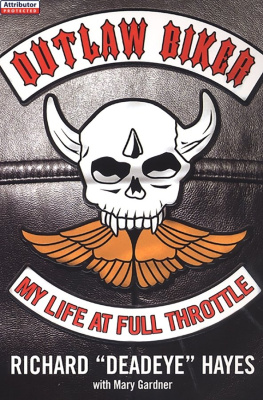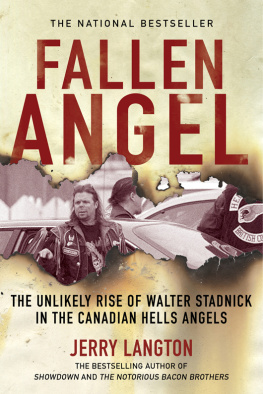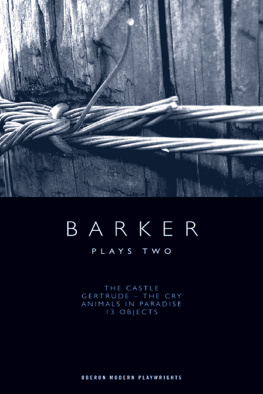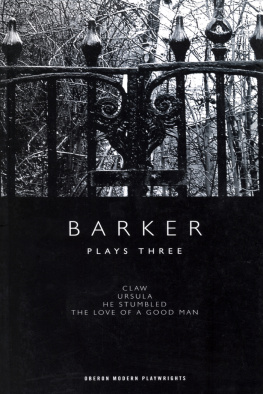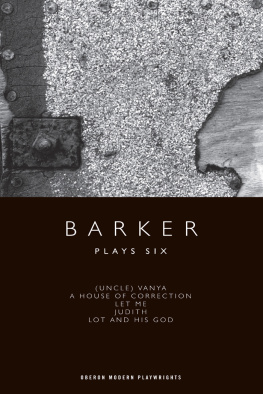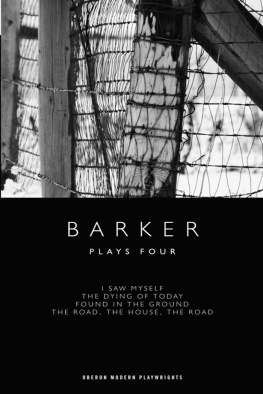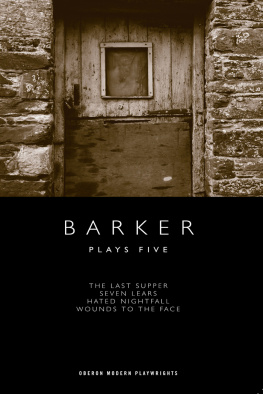
THE OUTLAW BIKER LEGACY OF VIOLENCE
Outlaw bikers represent a very small percentage of motorcycle riders who join motorcycle clubs, but they receive disproportionate attention due to their mystique, unconventional behavior, and violence. Although the outlaw biker phenomenon started in the United States, it has since spread throughout the world. The involvement of Outlaw Motorcycle Gangs (OMGs) in organized crime at the local, regional, national, and transnational levels fosters violence that puts innocent persons at risk for death or injury and leads to the demonization of bikers and the overcriminalization of motorcycle enthusiasts and club members. The Outlaw Biker Legacy of Violence, written by internationally known expert Thomas Barker, addresses the legacy of violence in the outlaw biker culture and tackles the implications of the violence that progressed as outlaw biker clubs evolved into adult criminal gangs engaged in crimes for profit over long periods of time and across borders.
Beginning with a history of outlaw bikers and the construction of the folk devil of the biker, the book outlines the distinctions between conventional motorcycle clubs, Outlaw Motorcycle Clubs, and Outlaw Motorcycle Gangs, and then traces the expansion of these groups across the globe. This book will be relevant to those interested in the examination or investigation of biker gangs in particular or organized criminal groups in general. It is essential reading for criminal justice students and others studying social groups, gangs, and organizations, or the sociology of deviance, and is also relevant for law enforcement professionals dealing with these organizations.
Thomas Barker, Ph.D., an international expert on Outlaw Motorcycle Gangs, is Emeritus Professor of Criminal Justice of Eastern Kentucky University. A former police officer, police academy instructor, professor at four universities, and Dean of the College of Criminal Justice at Jacksonville State University, Barker has been conducting research and writing on biker gangs for more than 15 years. He is past president of the Academy of Criminal Justice Sciences as well as of the Southern Criminal Justice Association, which annually issues the Tom Barker Award for Undergraduate Student Service in his name. He is the author or coauthor of 17 books and numerous articles, and frequently speaks to groups and in documentaries on organized crime. The Mob Museum, a popular attraction located in Las Vegas, Nevada, presented an Outlaw Motorcycle Gangs exhibit featuring an original video including interviews with Barker.
THE OUTLAW BIKER LEGACY OF VIOLENCE
Thomas Barker
First published 2018
by Routledge
711 Third Avenue, New York, NY 10017
and by Routledge
2 Park Square, Milton Park, Abingdon, Oxon, OX14 4RN
Routledge is an imprint of the Taylor & Francis Group, an informa business
2018 Taylor & Francis
The right of Thomas Barker to be identified as author of this work has been asserted by him in accordance with sections 77 and 78 of the Copyright, Designs and Patents Act 1988.
All rights reserved. No part of this book may be reprinted or reproduced or utilized in any form or by any electronic, mechanical, or other means, now known or hereafter invented, including photocopying and recording, or in any information storage or retrieval system, without permission in writing from the publishers.
Trademark notice: Product or corporate names may be trademarks or registered trademarks, and are used only for identification and explanation without intent to infringe.
Library of Congress Cataloging-in-Publication Data
Names: Barker, Thomas, author.
Title: The outlaw biker legacy of violence / by Thomas Barker.
Description: New York, NY : Routledge, 2018. | Includes bibliographical references and index.
Identifiers: LCCN 2017058153 | ISBN 9781138483897 (hardback) | ISBN 9781138483903 (pbk.) |
ISBN 9781351053655 (ebook)
Subjects: LCSH: Motorcycle gangsUnited States. | Violent crimesUnited States. | ViolenceUnited States.
Classification: LCC HV6439.U5 B3824 2018 | DDC 364.106/60973dc23
LC record available at https://lccn.loc.gov/2017058153
ISBN: 978-1-138-48389-7 (hbk)
ISBN: 978-1-138-48390-3 (pbk)
ISBN: 978-1-351-05365-5 (ebk)
Typeset in Bembo
by Wearset Ltd, Boldon, Tyne and Wear
This book is dedicated to the memory of our beloved son, Robert Thomas Bobby Barker.
CONTENTS
ACKNOWLEDGMENTS
I thank all the unknown persons who helped me in my research into the secret world of outlaw bikers. One of those bikers is Donald Charles Davis, aka The Aging Rebel. His blog and personal help were especially beneficial. The staff at Routledge were their usual kind and gracious selves. Ellen Boyne, my longtime friend, made this task easier to navigate as usual. My wife and best friend, Betsy, provided her usual support and encouragement. I express my gratitude to BSJ who made it all possible.
Thomas Barker
1
THE LEGACY OF VIOLENCE
Introduction
Outlaw bikers represent a small percentage of bikers that join motorcycle clubsconventional clubs, Outlaw Motorcycle Clubs (OMCs), and Outlaw Motorcycle Gangs (OMGs); but they receive the overwhelming media attention due to their mystique, unconventional behavior, and violence. Outlaw biker violence, especially that which occurs in public settings, puts innocent persons at risk for death or injury, leads to the demonization of bikers and the overcriminalization of all bikers, as evidenced by the police overreaction to the massacre at Waco on May 17, 2015. In effect, the police reaction created a moral panic, leading to the criminalization of innocent motorcycle riders. However, as with most moral panics, much of this criminalization and labeling is warranted.
Spontaneous impulsive and planned violence, especially that perpetrated by OMCs and OMGs, is a real and perceived danger ubiquitous in outlaw biker culture. Frequent alcohol and other drug use fuels this violence. Physical violenceindividual, group, or club-sponsoredis an ever-present predictable pattern of outlaw biker behavior. This is true now and in the past, and likely will be in the future. There is a legacy of violence in the outlaw biker culture.
The Outlaw Bikers Legacy of Violence
Pop Culture Response
Spontaneous impulsive and planned violence has been a part of outlaw biker history since the first outlaw clubs formed in the early 1950s. Hunter S. Thompson, in his iconic depiction of the 1960s Hells Angels, wrote, They inhabit a world in which violence is as common as spilled beer (quoted in Davis 2015b: 41). Thompson was almost beaten to death by multiple Angels who thought he was taking advantage of them. Outlaw biker legend says the iconic Hells Angels leader, Ralph Sonny Barger, saved him.
These devianti.e., outside of the social normmotorcyclists and their individual, group, and club-sponsored violence is a part of contemporary pop culture with TV exposure such as the highly publicized Sons of Anarchy (SOA) series and Gangland documentaries. These pop culture media portrayed the individual, group, and planned violence of supposed outlaw bikers and their clubs, often using known violent criminal men as actors. Several famous/infamous Hells Angels Motorcycle Club (HAMC) members with violent criminal histories have appeared on




